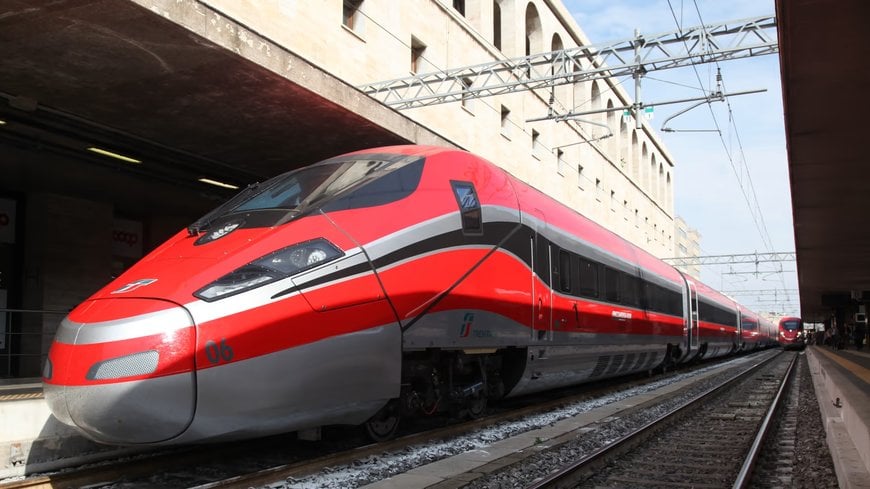railway-international.com
13
'23
Written on Modified on
Hitachi Rail: €861m deal with Trenitalia for 30 high speed trains
The new trains can run on both the Italian and European networks – and are due to be delivered from spring 2026.

As part of a major new order, Hitachi Rail has signed a contract worth €861 million with Trenitalia for the supply of 30 new ETR1000 high speed trains, with an option for a further ten trains for an additional €287 million.
The new fleet will be manufactured at the company's Italian factories in Naples and Pistoia, near Florence, with the first deliveries planned to start in spring 2026, at a rate of 8-10 trains per year.
The trains, like the previous ETR1000s, will have the iconic red Frecciarossa 1000 livery and are planned to be used primarily for the Italian high speed network. However, the trains are also able to run across Europe, including on high speed lines in France, Germany, Spain, Austria, Switzerland, Belgium and the Netherlands. Thanks to the onboard technology, the fleet is capable of travelling on different types of national railway infrastructure – switching seamlessly between the different power supplies and signalling system – in order to complete pan-Europe journeys.
From 2010 to now, 58 ETR1000s have been built for Trenitalia, Ferrovie dello Stato Group, and a further six are in the pipeline. With the additional 30 trains included in this new and important order, the total number of trains produced will rise to 94. The volume demonstrates the ETR1000's huge popularity amongst passengers and operators, as well as Hitachi Rail's leadership in the Italian high speed rail sector. Hitachi Rail is extremely proud of its record of equipping Italy with fast, safe, reliable and sustainable trains, capable of shortening journey times between the key Italian cities.
The ETR1000, capable of a top speed of 350 km/h in passenger operation, is also known for its low environmental impact. It sets the standards for high speed trains with its acceleration, quiet and smooth running. These characteristics are aiding its success internationally – with ETR1000 fleets running in Spain, where the train has been operating for over a year, and in France, where cross-border service between Paris and Milan began in 2021.
Part of the train's success is the use of light alloys for the vehicle's bodyshell. The design means that the trains are light, relative to their size, so have an excellent weight/power ratio and can offer impressive acceleration. It is this acceleration that allows the trains to get up to line speed quickly and thereby reduces passengers' journey time – a major factor in the success of high speed trains in Italy.
The design is also highly sustainable and at the end of the train's life almost all the materials can be recovered for reuse.
The new trains, which retain the main characteristics of the iconic trains already in operation, will offer an updated interior, with final design details due to be released ahead of passenger service. The comfort standards are very high, with an excellent level of sound proofing for quiet passenger journeys, adjustable LED lighting, ambient air conditioning, suitable access for people with reduced mobility, onboard monitors, wi-fi and power sockets for PCs and smartphones. The ETR1000 trains are around 200 metres long, have capacity for 460 seated passengers and have a bistro area onboard.
"The ETR1000s represent a real turning point in the travel habits of Italian passengers, and they are doing so also in Europe," says Luca D'Aquila, COO Hitachi Rail Group and CEO Hitachi Rail Italy.
"This new contract confirms our commitment, as a partner of Trenitalia and Ferrovie dello Stato Italiane Group, in offering safe, innovative, comfortable and green mobility solutions, further improving connections across Italy and from Italy to Europe. The new trains will have cutting-edge features and a renewed and even more functional design that we are sure will be appreciated by passengers and our customers."
The ETR1000 trains have been designed to meet each country's safety and operating requirements, and include additional in-cab signalling equipment to interface with individual national jurisdictions. In addition, the all-electric trains are also capable of running on both AC and DC currents, so to be able operate with different power supply systems.
www.hitachirail.com

